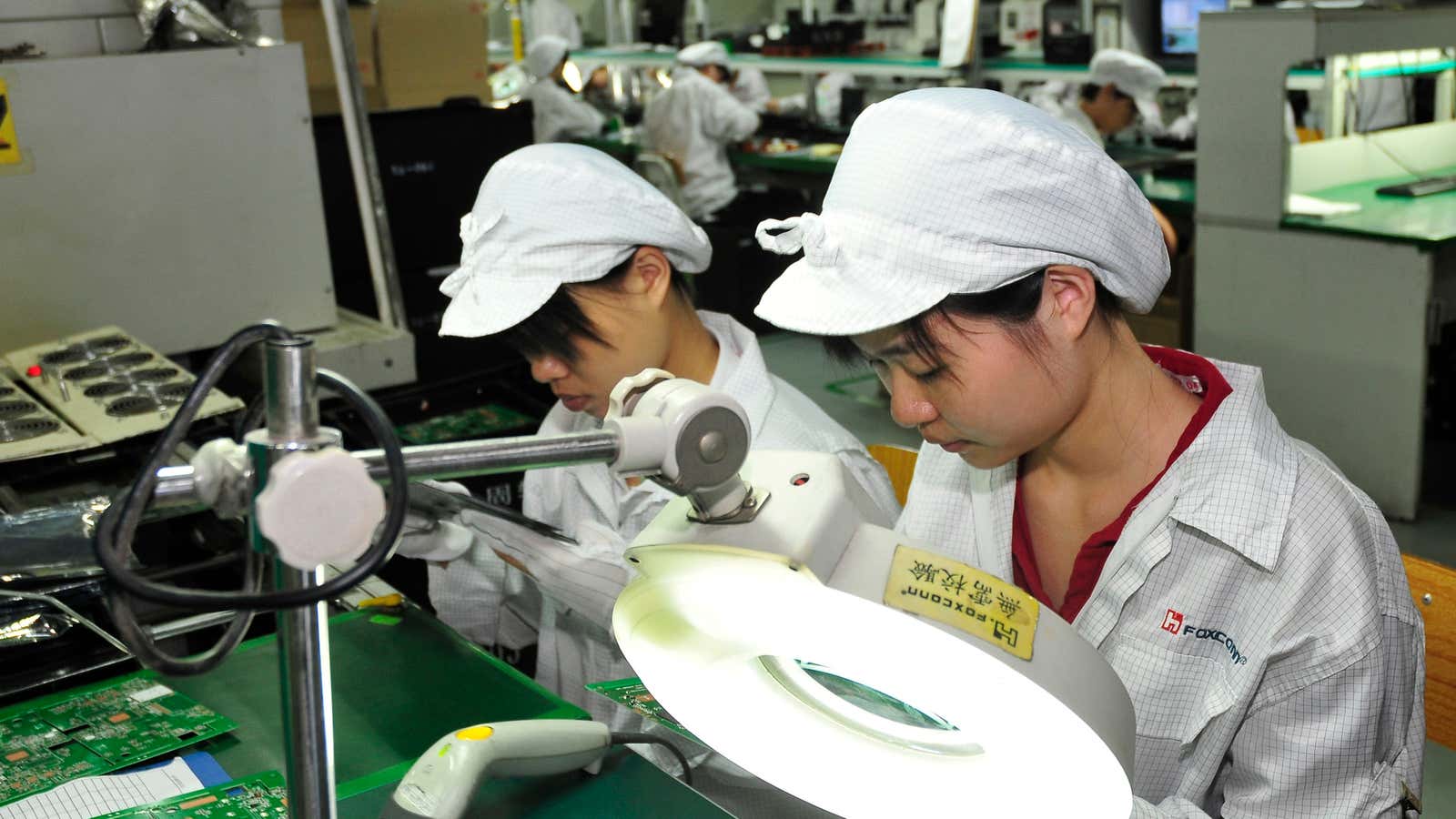Apple has taken strides to improve the conditions of the workers who manufacture its gadgets; the company touts the fact that it is the first and only technology company to join the Fair Labor Association, a coalition of non-profits, universities and corporations “dedicated to protecting workers’ rights,” and it regularly dispatches inspectors to its subcontracting manufacturers in Asia, to keep them up to snuff with its labor standards. Often, by the company’s own admission, they are not.
But evidence of abusive labor conditions among Apple’s suppliers keeps on coming, and the latest, from China Labor Watch, includes 12-hour shifts, illegal pregnancy tests and strict confidentiality agreements designed to cover it all up. Apple says it has already dispatched its own team to the factory to investigate.
These abuses allegedly happened at a factory contracted to build part of Apple’s (rumored to be) forthcoming, less expensive iPhone 5C. By pricing it aggressively, Apple could generate huge demand for the iPhone 5C, especially in emerging markets.
Apple and other makers of electronics now seem to be in a position analogous to clothiers like H&M and Zara, for which rapidly and cheaply producing clothes to fit the latest trends—so-called “fast fashion”—adds to the pressure on sub-contractors to cut corners and endanger workers. Pressure on these companies in the wake of 1,100 deaths in the collapse of a garment factory has led to plans for reform and a $250 million pledge to improve conditions.
The problem for both clothing manufacturers and Apple is that as long as they’re trying to inexpensively meet huge demand on tight deadlines, there are plenty of economic incentives for factory owners to engage in bad behavior. Throw in the fact that workers are thousands of miles away from the companies profiting from their labors, and the lack of accountability becomes obvious.
The irony here is that unlike with garments, the margins on gadgets are substantial, and wages represent a very small portion of the cost of assembling them. The reason most of these jobs remain in China, which no longer offers rock-bottom wages, is that it’s the only place in the world with the scale and engineering talent to produce electronics at the volume and level of quality needed to satisfy Apple and other manufacturers. This makes it all the more baffling that Apple isn’t able to clamp down on worker exploitation, and suggests that the quest for profit is trumping issues of worker rights.
